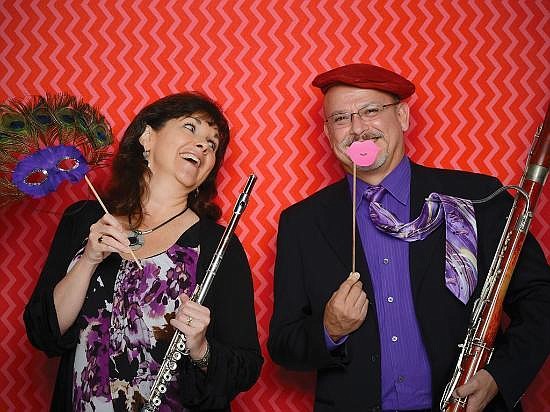- November 23, 2024
-
-
Loading

Loading

The musicians of the Sarasota Orchestra are back in town after summer gigs everywhere from Europe to the Rockies, and several of them began a new season of music-making with a program, aptly titled, “Around the World.”
But this concert, held in Holley Hall for a good-sized crowd, considering the time of year, had more to do with the music they programmed than where they’d spent their summer vacations.
Composer Valerie Coleman’s charming, melodious and rhythmic “Umoja,” got things started in a spirited, fun performance by flutist Betsy Hudson Traba, oboist Terry Orcutt, clarinetist Bharat Chandra, hornist Joshua Horne, and bassoonist Fernando Traba.
Coleman, who’s the flutist with the award-winning Imani Winds, named this piece for the word that means "unity" in Swahili, and it lives up to its name with a bubbling quirkiness that seemed to unite all the musicians in a good swirl of accessible sound.
The same group reassembled for “Architectonics,” a 1984 work by Estonian composer Erkki-Sven Tuur. Betsy Traba introduced the piece by informing us that the composer, born in 1959, had founded a “heavy metal band.” But he assured us he’d given that up and gone straight, and that “Architectonics” wouldn’t sound like heavy metal.
It didn’t. It was a soundscape of contrasts: light and dark; loud and soft. It was here that Orcutt, who will play principal oboe with Sarasota Orchestra this season, while Adam deSorgo does a turn with the Kansas City Symphony, had a chance to shine. Tuur gave the oboe a lonely solo line that showed off his ability to color the same notes with different dynamics. It was impressive playing.
The well-contoured program continued with a Divertimento by British composer Sir Malcolm Arnold, which was performed by Betsy Traba, Orcutt and Chandra. This trio uses the flute as the top voice, the clarinet as the bottom (something like a contralto in an all-treble grouping) and the oboe as the mezzo-like voice in the middle.
Bouncy, blousy and sometimes bluesy, the trio gave it a splendid reading, with Chandra making the most of his repetitive two-note organ point in the fourth movement and everyone joining forces in the declarative fanfare of the fifth.
The landscape changed to Germany for the final work on the program: Brahms' Piano Quartet in C Minor, with pianist Jonathan Spivey, violinist Jennifer Best Takeda, violist Matthew Pegis and cellist Christopher Schnell. This is a very visceral piece — romantic, rich, warm, guttural and lush.
At times rhythmically reminiscent of the Beethoven's Fifth, it’s gutsy music, and the players gave it a stylistic, impassioned performance. A great start to a new season.